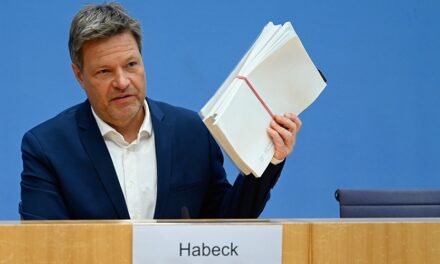In the columns of Népszava, Gábor Horn wrote a piece of publicism under the title Némzetejesítő Opposition And yes, even after reading the title, a few unsought words come to mind.
Because if we see the image of the opposition coalition, the members of which are better suited to the adjective "loser of the nation", that is, in the real reality, not in the alternative one, then the question logically arises that if they individually at least only whistle at the Hungarian nation, but if maybe they would rather spoil him, then together, after a possible change of government, they will care for him with the deepest love of their hearts?
The "unifying" activities of the opposition mix are well-known, starting from the banter with 23 million Romanians, through Momentum's performance in Transylvania, when Fekete-Győr called on the locals to support the Romanian party before the municipal elections, reaching Gréczy's recent ATV speech, when he complained to Hungarians abroad about the vaccines provided by the Hungarian government. Speaking of which, Gréczy: if the DK is already pushing for its rehabilitation, what can we expect if they really end up in the government? Can we hope so much that the vassal with a stained past will at least appear in clothes at the head of one of the ministries?
So, the opposition assembled only and exclusively to grab power is aptly labeled as a nation-unifier, just as the term "speaking the truth" was applied to the "spoiling" and "whore country" of Öszöd - not at all.
"It was also evident from the content point of view that primary elections are necessary, as long as this method ensures an actual election from the colorful opposition palette - as opposed to coalitions invented arbitrarily and without taking into account the will of the electorate - with the understanding that any result can come out"
- writes Horn, and we hope he is only joking and not deliberately misleading his readers, especially when he talks about "real choice". Do we still remember the old saying that started with "they didn't say that, Feri..."? Horn spoke honestly at the time, although he did not know how the HírTv camera would take it.

Photo: Attila Polyák / Origo
"The primary election will undoubtedly expose Orbán's lie, according to which Fidesz unites and the opposition divides the nation. It is precisely against this exclusive, autocratic and fear-inducing behavior that the nation unites"
- he continues, and he is no longer content with giving the opposition a "national" label, but by directly questioning the national nature of the government and painting the salad coalition in national colors, he is lying to the openly globalist as national, and the national as a liar. It is worth noting here that in this line of thought, the author cannot do anything else - especially if he wants to remain coherent, which coherence he loses by the end of the text - but to contrast the government with the opposition; of course, the national cannot collide with itself, i.e. with the national.
"Just as in 1956 many people of very diverse backgrounds, educations and intentions found each other in the spirit of the lofty idea and actual goal of independence and liberation, so 2022 will also be about how a political goal that transcends differences and perceived incompatibilities forges the nation into unity."
- he also writes, and I admit, if I hadn't read the entire article, I would say that this sentence was the intellectual low point of his brainstorming. Because to degrade the revolution of 1956 and its context into a violent analogy can be called an intellectual low point, to put it cautiously. Unless, I say again, the aim is not to completely mislead the readers. But who would assume that about Népssava and its authors?
Then he also writes that
"the government media suggests that the opposition, which really combines many different worldviews, is only held together by what they don't want, the reality is that what they want follows ab ovo from that."
And here the author commits the logical somersault that he highlights at the end of the text. Using a simple analogy, just because I know for sure that I don't want to marry my neighbor Józsi, it doesn't follow - especially not ab ovo - that I know who I want to marry. And it only makes my situation worse that, based on the productions I presented in my previous marriages, it is known that I am also lazy, I don't have much brains, and I keep running the household. Not a little, a lot! And, unfortunately, it doesn't help that Horn slaps the usual slogans that have become commonplace about what the opposition wants, such as freedom, hope, competition and development.
"The technical details have been worked out. Now comes something more important. Concrete things must be said about Hungary, clearly, followable, believable, yet inspiring, and people must be explained to the people with the inspiration to forget decades of paralysis, what will await them after 2022
- turns to his conclusion, the author admits that those in straitjackets have no idea what should be done, especially what should be done better than Orbán.
Finally, he concludes his thoughts with this:
“Now we get the joy of participation and competition, and the candidates have to make sense of it all. If they do - and all signs point to this - people will be relieved of a great deal of discouragement and burden, and will happily rush to select the most ideal candidate. And the winners, as has been clear since 2019, will be grateful for the trust."
Is not it beautiful? I especially like the last sentence, although I admit, I haven't been able to decipher it for days, what exactly could the author have in mind? How did Gergely Karácsony thank the voters for their trust? How did you declare the climate emergency? Did he attack the Liget project? Or with your perfectly tailored Facebook statements? How do you intend to drill the construction of Fudan University? That he has done absolutely nothing for the capital in the last two years, apart from the fact that he has now openly announced that he is winking from the mayor's office?
Or did Gábor Horn, when he wrote that these people who are never short on promises, but never deliver anything in power, "grate for the trust", didn't he mean the trust of the voters? Because when it comes down to it, yes, I mean it.
Photo: Attila Polyák / Origo












